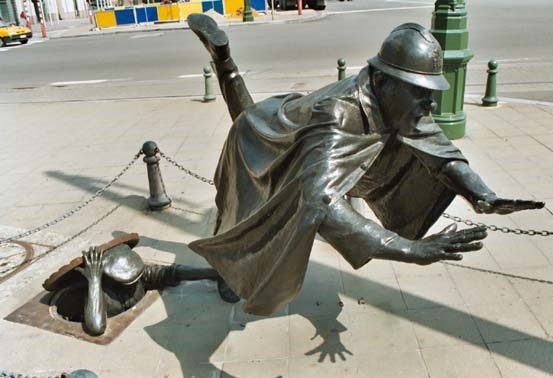Brussels was on lockdown for almost a whole week after the terrible terror attacks in Paris on 13 November. Friends all over the world wrote to me to ask if I was well. It is nice that people care about you but I did not understand why they were so worried until I started to read international media and how they covered the Brussels lockdown. According to the media, Brussels was at war. The reality is slightly different, as often is the case.
It all started on 13 November in Paris when terrorists belonging to the Islamic State attacked innocent people in a concert hall, outside a football stadium, in cafés and in the streets. 130 people died, many more were injured. Very quickly it was clear that there was a Brussels connection. Some of the terrorists who participated in the attacks were French and Belgian citizens living in Brussels.
The French President Francois Hollande, said the attacks “had been planned in Syria, organized in Belgium and perpetrated on our soil with French complicity”.
Molenbeek
Molenbeek, one of the 19 communes in Brussels, was once again connected to extremism and jihadists. All eyes looked on Molenbeek after the terror attacks in Paris. I myself was interviewed by foreign media, from BBC to a local Bulgarian TV station. All of them were wondering why Molenbeek had become a home to jihadists. When I told a journalist that I work in Molenbeek, he was shocked: “How can you work here? It is so dangerous.”
Before getting to Molenbeek and jihadism, let me say that Brussels is one of the most diverse cities in the world. It is a great city to live in. According to my humble opinion Brussels can be seen as symbol of the future.
However, Brussels is facing serious problems. One third of the inhabitants live in poverty. In Molenbeek, about 40 % of the youth is unemployed. There is a shortage of schools and teachers. I work in many schools and the teachers tell me that some kids do not even have enough food. The poverty percentage in some classes is around 70%. And around 1 out of 3 pupils drop out of school without any degree. No degree, no work, no future.
Any society or city that fails to offer a future to its youth has a problem. Problems have negative consequences.
It does not stop here. Many of the immigrants (often Muslim) in Brussels face racism and discrimination. Research has confirmed that they are confronted with racism in the education system, discrimination in the labor market and racism by the police. In fact, academic research by the University of Leuven has shown that the biggest problem facing youth in Brussels is racism by the police.
Poverty and exclusion in combination with racism and discrimination create another problem. I can see it daily when working with young people. Many of them have no self-esteem. They feel unwanted, excluded and like they don’t belong in the society. And because they lack self-esteem, they do not feel that they should participate or engage in a society that is rejecting them.
Cocktail of factors
Poverty and racism are part of the explanation. But there are also other important contributing factors which drive some youth to extremism. Muslims have been oppressed in their own countries by dictators. The war in Syria is still going on and more than four million Syrians have already been forced to flee from their country. Muslim youth knows this and sees the images on the Internet. Some of them become radicalized and victims of the extremist propaganda of the Islamic State who wants to establish a Caliphate.
Another factor which is counterproductive in the combat against extremism is the negative image of Islam and Muslims. Muslims and Islam is oftentimes depicted as a danger to the West. It does not matter where these Muslims live, nor that they have been born and raised in Europe, they remain strangers and a potential danger in the eyes of others.
Media and politicians contribute to this image and continue to promote it. And this causes many in the West to fail to see and acknowledge the normal lives of the 99.9 percent of Muslims by focusing on the extremist 0.1 percent. This phenomenon risks us to further push away Muslim youth, who while already struggling through life, as most of us do, will feel even more unwanted in our society.
It is in other words a cocktail of factors that make some youth fall easy prey to the Islamic State or Al-Qaeda recruiters, often through Internet. This is why our focus should be not on punishing youth, who are in the process of becoming radicalized, but the recruiters and preachers who are brainwashing our youth and taking them away from their families.
We will not tackle extremism or terrorism by only putting more police and even soldiers on our streets. We must also offer people a future that they can believe in and want to be a part of. This includes tackling the socio-economic problems, racism and discrimination and provide youth with hope here and now. By doing this we will empower young people. They will feel part of society and believe in the future.
As long as we forget to also deal with these issues, we will fail in our fight against terrorism and extremism as more and more youth will become radicalized and more lockdowns will follow in Brussels.

